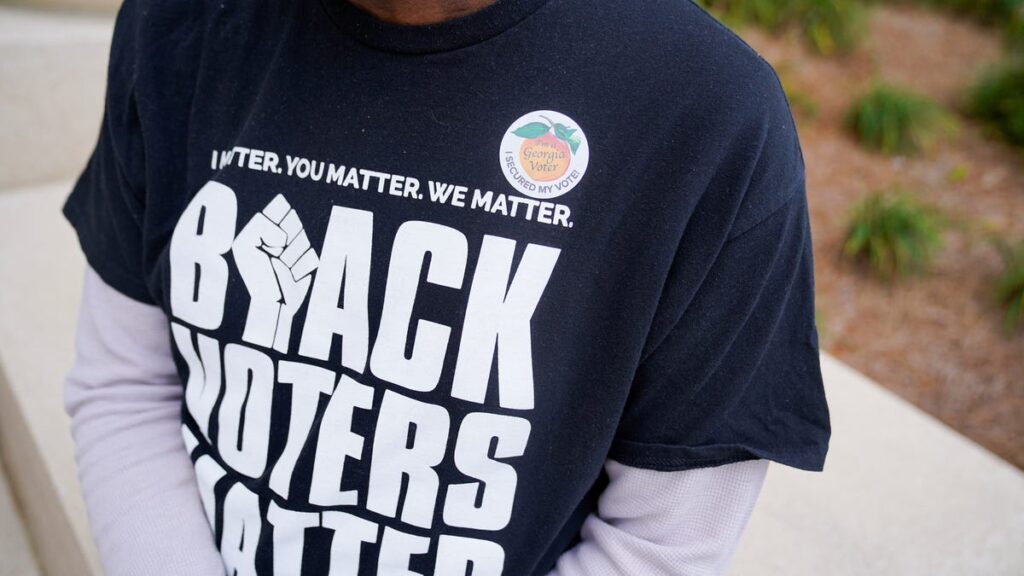(NAACP) —
On the heels of SCOTUS striking down affirmative action in higher education, conservative groups have moved on to ram against diversity initiatives in another arena: corporate America. Now a new coalition of civil rights groups are pushing back.
Yesterday (Sept. 13), 13 groups announced they’ll form a council to provide legal protection for workplace diversity, equity and inclusion (or DEI) programs. The newly-announced Council for Economic Opportunity & Social Justice collects groups including the NAACP, the National Action Network, the Lawyers Committee for Civil Rights under the Law, and the Global Black Economic Forum. Their goal: offer legal support to groups engaged in DEI efforts, respond to legislative efforts against diversity, and build programs to encourage civic participation before next year’s election cycle.
The council will “come up with coordinated, strategic approaches to the right-wing attacks that we’re seeing against marginalized communities, and specifically Black people,” said Alphonso David, president and CEO of the Global Black Economic Forum, which organized the formation of the Council for Economic Opportunity & Social Justice, at Fortune’s Impact Initiative conference in Atlanta.
The conservative crusade against workplace diversity
This summer, a group of Republican state attorneys general issued a letter warning Fortune 100 CEOs that the reversal of affirmative action would have ramifications for corporate diversity, equity and inclusion programs. Days later, Democratic politicians urged the same companies to double down on DEI “because there is still much more work to be done.” The clash has been anticipated: Comments from the Supreme Court signaled as early as a year ago that its rulings would make their way from the ivory tower to the workplace.
Now right-wing organizations are making the pushes they’ve promised, with former Donald Trump staffers Stephen Miller and Mark Meadows and attorney Edward Blum issuing lawsuits and letters to dismantle diversity programs.
The civil rights coalition was inspired at least in part by one of these lawsuits: that against Fearless Fund, a venture capital firm led by Black women in Atlanta. Blum’s nonprofit American Alliance for Equal Rights (AAER)—which also argued and won affirmative action cases against Harvard College and the University of North Carolina at the Supreme Court—sued the firm for a grant program that awards Black women who own small businesses, claiming the program engaged in racial discrimination. David, of the Global Black Economic Forum, has offered pro-bono legal services to Fearless Fund.
But are companies actually pulling back on their diversity programs?
The data says perhaps not.
The letters and lawsuits of anti-diversity crusaders would certainly like to press corporate leaders to turn away from their DEI investments. But recent findings actually suggest most workplaces aren’t responding to the provocations. One analysis from this year finds that when it comes to job postings, US companies are using diversity language more.
A report issued last month from Textio, a firm that aims to remove biased language from job postings, finds that the use of terms like “diversity,” “equity,” and “inclusion” has increased in job listings in the last year. Textio analyzed 6.6 million job posts by US companies in 2022 and 5.6 million in 2023. Among the results: while about 10% of job posts included the word “equity” in 2022, the share rose to 12% in 2023. Mentions of “diversity” also increased a percentage point. While the gains are small, they mark that corporations aren’t walking away from DEI altogether.
“The country is getting less white,” Textio cofounder and CEO Kieran Snyder tells Quartz. “Your customer base is getting more diverse. And if you’re not matching them, you won’t serve them…If you don’t have a diverse team, literally the economics [say] your business isn’t going to succeed.”
Leaders shouldn’t pull back on their initiatives “by saying, ‘Okay, now diversity is dead,’” Bonnie Levine, an employment attorney specializing in workplace DEI, told Quartz as the Supreme Court prepared to rule against affirmative action in higher education. If their job postings are indicative of their investment in workplace diversity, they haven’t.
—
Read More News from The NAACP
